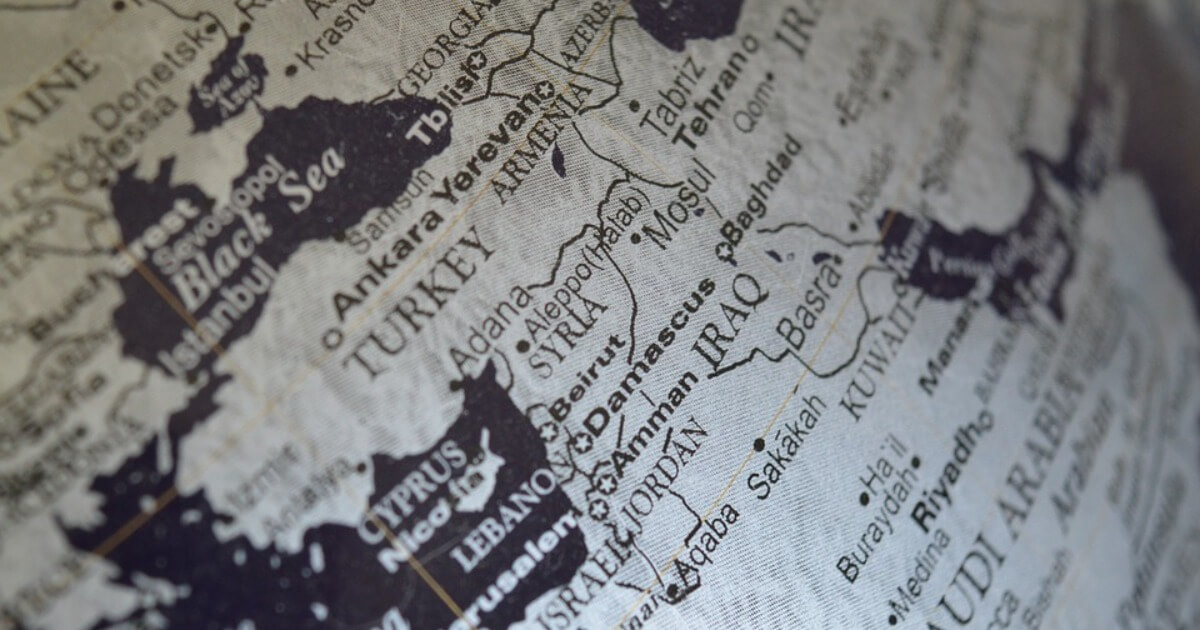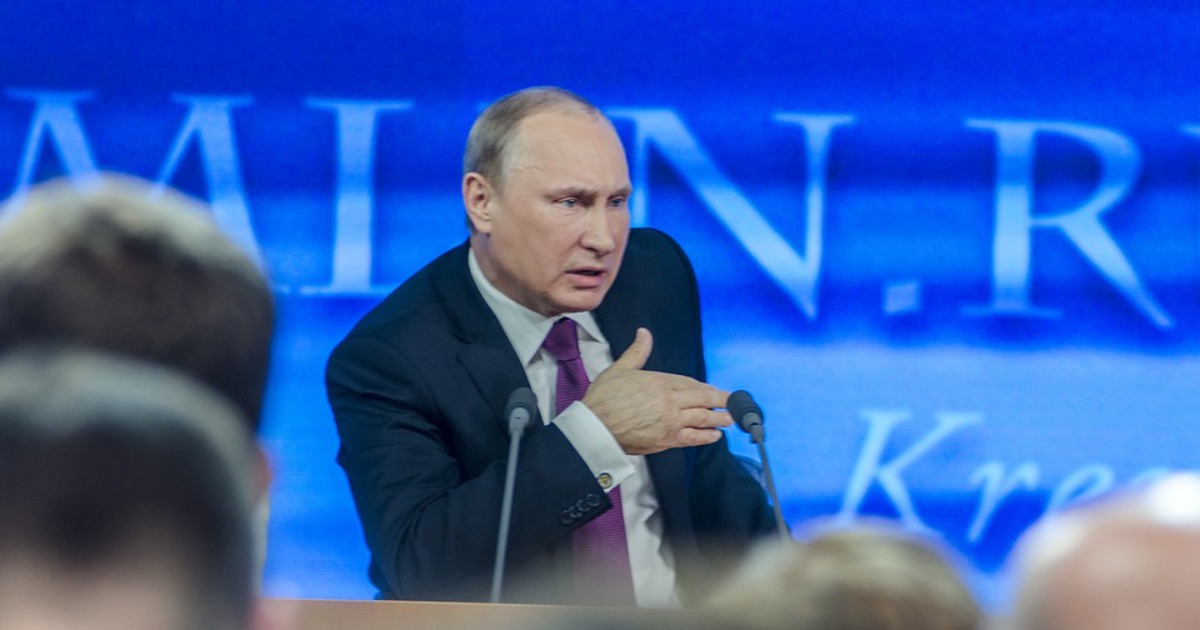The Endless Gyrations of the US in the Middle East
Why the U.S. must fundamentally change its Middle East policy from false friendships to hard containment.
September 27, 2019

Let’s be clear about one thing: There are really no “good actors” in the Middle East, arguably the most unstable region in the world.
In addition, the United States has long lost its reputation as an honest broker, especially regarding one of the many central conflicts in the region, the Israeli/Palestinian issue.
Exploiting Saudi Arabia
As far as Saudi Arabia is concerned, America’s supposed “friendship” with that oppressive, murderous regime goes as far back as 1933.
The U.S. government engaged in close relations with the country’s founder in order to guarantee that the Standard Oil Company of California (now Chevron) received a 60-year concession to explore Saudi Arabia’s oil reserves.
This special relationship survived Saudi Arabia’s nationalization of its oil industry. Even today, major U.S. oil companies still maintain refineries in Saudi Arabia.
U.S.-Saudi: Sales, not morals
As Saudi Arabia became rich, the United States also became its major arms supplier. This was remarkable considering the fact that, for long periods of time, the Saudi regime did not have a favorable view of Israel (the Saudi people still don’t).
According to the New York City-based Council on Foreign Relations (CFR), the United States exported $90 billion in military equipment to Saudi Arabia since 1950. President Trump lays claim to an agreement in 2017 to add an additional $350 billion in arms sales over the next ten years. According to the CFR, Saudi arms imports were almost 18 times greater in 2017 than ten years earlier.
U.S.: Soft on Saudi terrorism
No surprise then that Democratic and Republican presidents alike have ignored the brutality of the regime, as well as the fact that Saudi Arabia’s biggest export after oil is terrorism. That terrorism culminated in the 9/11 attacks, with 15 of the 19 attackers hailing from Saudi Arabia.
Public executions in Saudi Arabia take place on a weekly basis. And even the unimaginably brutal murder of Jamal Khashoggi — a Saudi dissident and resident of the United States — in the Saudi consulate in Istanbul did nothing to put into question the U.S.-Saudi friendship.
This puts to rest the notion that the U.S. government promotes human rights. Its own clients are free to abuse their own people at home – and abroad – as abhorrently as they wish and/or MBS fancies.
Protecting Kuwait or the Saudis?
Or take Kuwait, for example, another murderous regime in the region. In 1990/91, the U.S. government, under the presidency of George H. W. Bush, came to Kuwait’s aid after it had been invaded by another bad actor, Iraq, purportedly for standing up for Kuwait’s sovereignty that was itself governed by a despicable regime.
However, the real reason for America’s first war with Iraq was a flanking maneuver to protect Saudi interests. The key point was to keep Iraq from gaining further oil reserves and possibly one day threatening Saudi Arabia militarily.
The case of Iran
Until Shah Reza Pahlavi was overthrown by the ayatollahs, the U.S. government was a strong defender of the mass murdering and torturing shah. He reigned over his country for 38 years, without concern for the human rights of the Iranian people.
The U.S. government even overthrew an elected prime minister of Iran in 1953 to protect the shah from “harm.” Meanwhile, the United States sold endless amounts of arms to Iran. Of course, that all changed when Ayatollah Khomeini took over in 1979.
Befriending Iraq’s Saddam Hussein
From today’s perspective, it must come as a surprise that the United States threw its weight behind Saddam Hussein and Iraq, when that country invaded Iran in 1980. That is the same Iraq that it would fight in two wars in 1990/91 and 2003.
Obviously, to the U.S. government of the time, the sovereignty of Iran after Saddam’s invasion was not worth defending in as principled a fashion as it pretended to protect the sovereignty of Kuwait 10 years later.
Next: Afghanistan
After a Communist coup in 1978 and a Soviet invasion in 1979, the United States armed and financed the medieval Mujahedeen or Taliban.
They would eventually take over Afghanistan, killing hundreds of thousands, as well as destroying the rich cultural heritage of the country and playing serial host to terrorist organizations such as al-Qaeda.
Israel: Above it all
Ever since Israel’s founding, the country had to struggle with the consequences of its foundation which displaced hundreds of thousands of Palestinians. For many years, Israel honestly tried to settle this conflict peacefully.
But ever since the 1967 war during which the country began to occupy large swaths of Arab land, Israel’s determination to solve its conflict with the Palestinians began to wane.
It should be noted that the Israeli occupation of the West Bank has been declared illegal by the United Nations, international courts and even the Supreme Court of Israel.
Stubborn irreconcilability
This Israeli path towards stubborn irreconcilability sharpened under Benjamin Netanyahu. He has pushed the envelope further and further. During his first term as Prime Minister, he ordered the poisoning of Hamas leader, Kahled Mashal, in Jordan in 1997.
In that particular case, pressure from Bill Clinton led Netanyahu to turn over the antidote of the poison to Jordan and Mashal’s life was spared (note to reader: Good U.S. interventions should be – and are — noted, even if they are few).
Netanyahu: In it mostly for himself
When Netanyahu returned to power in 2009, he grew ever more belligerent. He was openly hostile to the two-state solution of the Israeli/Palestinian conflict supported by the United States and other advanced countries.
As Netanyahu‘s parliamentary majorities shrank, he allied himself with ever more of the extremist Israeli parties. Before this month’s election, Netanyahu even promised to annex the West Bank, solely to further his own political fortunes. All this occurred with the tacit if not open approval of President Trump.
U.S.: A rational actor?
The lesson to be learned is that the U.S. has been inconsistent, acted in ill-defined self-interest and is a hindrance to stability in the region rather than a positive influence.
Forging friendships with murderous regimes is a tricky business. It may allow the United States to sell more arms or have better access to oil, but it does nothing to solve the problems in the region.
As the United States is still a superpower, it should use that power not for short-term gains from friendships with countries that have absolutely no common values with the United States. Instead, it should use its power to put pressure on them.
Selling guns, tanks and missiles to countries with despicable human rights records perversely only increases their leverage over the United States.
By disregarding these countries horrific disregard for human life on the values for which United States allegedly stands, these countries manage to super-impose their will on a hyper-mercantilist United States.
Hard truths to be learned
Saudi Arabia, Iran, Iraq, Kuwait, Qatar, Afghanistan and countless others are not America’s friends, far from it. The Israeli government has become at best a distant friend.
Rex Tillerson, Trump’s own former Secretary of State, stated in a panel discussion at Harvard University on September 17, 2019, that Donald Trump got “played” by the Israeli government.
Conclusion
Containment through the deliberate, calculated as well as consistent use of power should be the maxim for U.S. foreign policy in the region. This will not lead to regime changes.
For the idea of regime change to work, the people living in these countries must want such changes for themselves.
Thus, the best chance for greater stability in the Middle East is to use the time-tested tool from managing the Soviet threat and focus on containing the worst excesses.
That’s all that can be reliably done. Phony friendships just encourage further excesses.
Takeaways
Forging friendships with murderous regimes may allow the US to sell more arms or access oil, but does nothing to solve the problems in the region.
Selling guns, tanks and missiles to countries with despicable human rights records perversely only increases their leverage over the US.
The US should use its power not for short-term gains from friendships with countries that have no common values with it. It should use its power to put pressure on them.
Saudi Arabia, Iran, Iraq, Kuwait, Qatar, Afghanistan and countless others are not America’s friends, far from it. And Israel has become at best a distant friend.
Containment through the deliberate, calculated and consistent use of power should be the maxim for US foreign policy in the Middle East.

